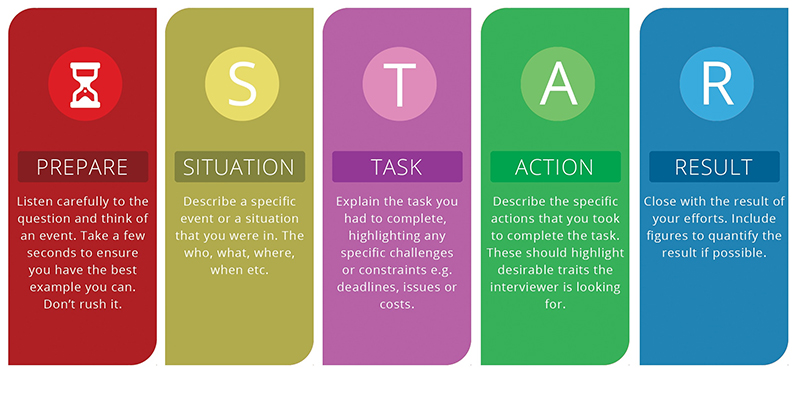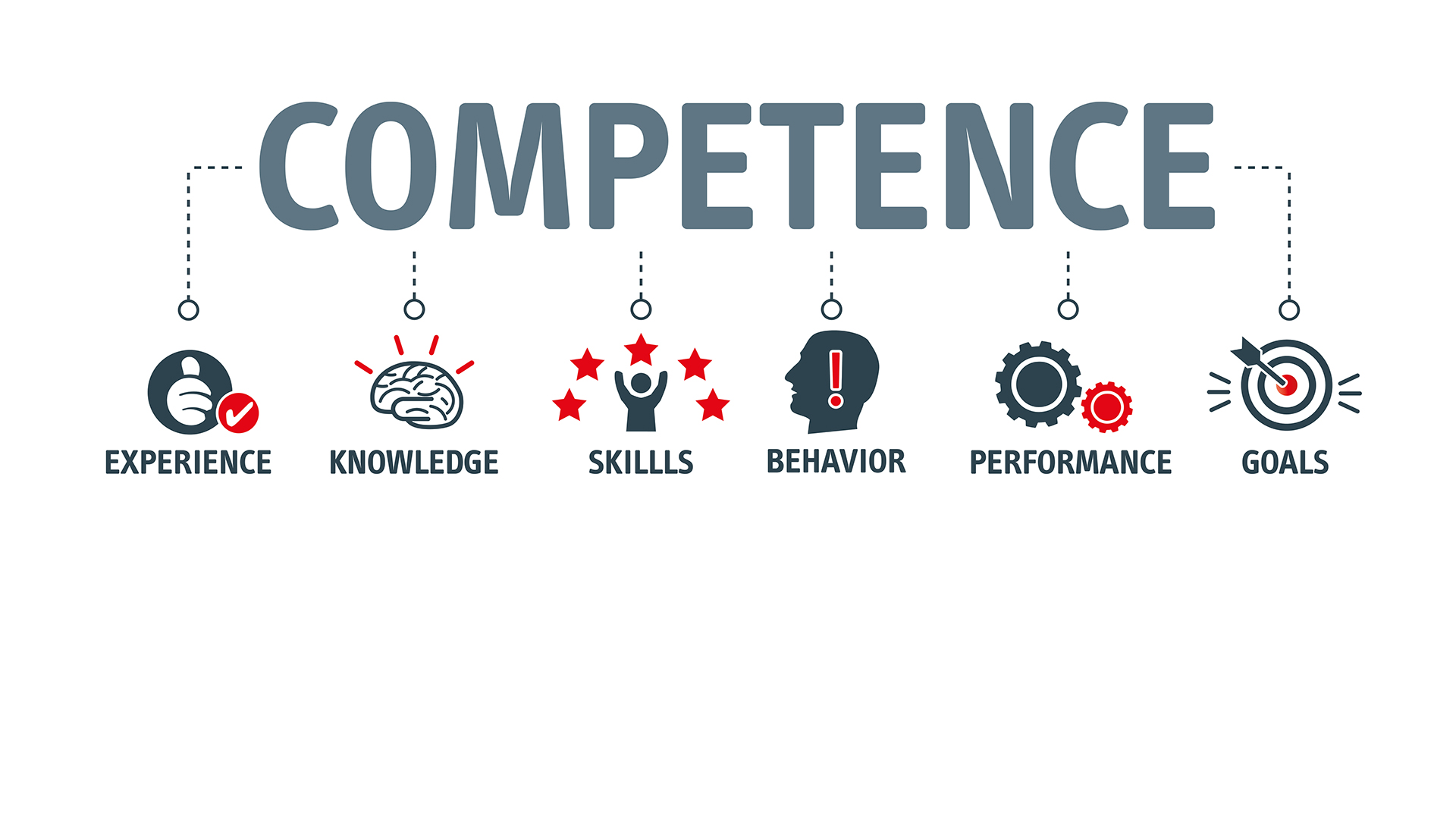Competency based Interviews
Competency based interviews are the most prevalent style of interviewing. Apart from actually getting someone to trial the role or to undertake an assessment centre that includes simulating the tasks of the role, competency based interviewing is the most effective way of determining if someone can do the role they are interviewing for. It reduces ‘hiring risk’ for the hiring company.
Note that some companies will be very literal in their competency based interviewing process – eg. They will ask you to give an example of your teamwork, working alone, negotiation and situations where you have influenced for example. However, others will ask more open-ended questions about your experience but still expect you to answer questions in competency-based style. It is important for you not to speak in generic terms as clients are looking for clear demonstration of specific experience and personal attributes this will help them determine that you can do the job.
Companies conduct competency based interviews to draw on your past experience and request you to describe specific examples of incidents that demonstrate your competence in a particular area. The most effective way of answering these questions is to use the “STAR” technique:
The most common behavioural interview questions
1. Teamwork
“Give me an example of how you’ve worked as part of a team”
“Tell me how you deal with personality clashes in the workplace”
“How do you react when teammates disagree with you?”
“Tell me about a time you’ve gone above and beyond to help a colleague”
“How do you react when someone criticises your work?”
“What would you do if you felt a teammate wasn’t pulling their weight?”
2. Decision making
“Tell me about a time you’ve taken the initiative”
“What’s the hardest decision you’ve had to take at work?”
“Describe a decision you made that wasn’t popular, how did you get people on side?”
“Have you ever taken the lead on improving processes in your workplace?”
3. Stress and pressure
“How do you deal with tight deadlines at work?”
“Tell me about a time you’ve worked effectively under pressure?”
“How do you handle stress”
“What do you do when multiple stakeholders are putting pressure on you to complete tasks?”
4. Prioritising
“How do you make sure you don’t miss deadlines?”
“What techniques do you use to manage your time effectively?”
“What do you do if you know you aren’t going to meet your targets?”
“Tell me about a time you managed multiple responsibilities. How did you handle that?”
“How do you set yourself goals?”
5. Successes and failures
“What’s your greatest professional achievement?”
“What’s the biggest mistake you’ve made in your professional life?”
“How do you deal with setbacks?”
“Give me an example of a goal you achieved, and how”
“Tell me about how you’ve dealt with dissatisfied customers”
6. Managing, and being managed
“Tell me about a time you exercised leadership”
“Give me an example of when you’ve motivated others”
“Tell me about a time you’ve been micromanaged, how did you deal with that?”
“What management style suits you best?”
How do you prepare for a behavioural interview?
Once you’ve made some notes to answer these key questions, we highly recommend conducting a mock interview. This allows you to:
Online Tests and Assessments
Many companies and employers now use online tools such as numerical, verbal reasoning and personality profiling analysis (PPA) assessments as part of the interview process to gain an idea of the level you are currently operating at. This can be quite daunting if you are not used to them however, you are able to practice before completing the real assessment to give you every chance of performing well. Some are free with limited free-assessments and others may charge to obtain more practice tests - if this is the case, it's probably worth the investment when weighing up the long term career opportunity versus a few pounds. Depending on employer, some companies use these as a guideline and others may have a pass rate and use them as is their decision making tool (unfortunately)
Competency based interviews are the most prevalent style of interviewing. Apart from actually getting someone to trial the role or to undertake an assessment centre that includes simulating the tasks of the role, competency based interviewing is the most effective way of determining if someone can do the role they are interviewing for. It reduces ‘hiring risk’ for the hiring company.
Note that some companies will be very literal in their competency based interviewing process – eg. They will ask you to give an example of your teamwork, working alone, negotiation and situations where you have influenced for example. However, others will ask more open-ended questions about your experience but still expect you to answer questions in competency-based style. It is important for you not to speak in generic terms as clients are looking for clear demonstration of specific experience and personal attributes this will help them determine that you can do the job.
Companies conduct competency based interviews to draw on your past experience and request you to describe specific examples of incidents that demonstrate your competence in a particular area. The most effective way of answering these questions is to use the “STAR” technique:

The most common behavioural interview questions
1. Teamwork
“Give me an example of how you’ve worked as part of a team”
“Tell me how you deal with personality clashes in the workplace”
“How do you react when teammates disagree with you?”
“Tell me about a time you’ve gone above and beyond to help a colleague”
“How do you react when someone criticises your work?”
“What would you do if you felt a teammate wasn’t pulling their weight?”
2. Decision making
“Tell me about a time you’ve taken the initiative”
“What’s the hardest decision you’ve had to take at work?”
“Describe a decision you made that wasn’t popular, how did you get people on side?”
“Have you ever taken the lead on improving processes in your workplace?”
3. Stress and pressure
“How do you deal with tight deadlines at work?”
“Tell me about a time you’ve worked effectively under pressure?”
“How do you handle stress”
“What do you do when multiple stakeholders are putting pressure on you to complete tasks?”
4. Prioritising
“How do you make sure you don’t miss deadlines?”
“What techniques do you use to manage your time effectively?”
“What do you do if you know you aren’t going to meet your targets?”
“Tell me about a time you managed multiple responsibilities. How did you handle that?”
“How do you set yourself goals?”
5. Successes and failures
“What’s your greatest professional achievement?”
“What’s the biggest mistake you’ve made in your professional life?”
“How do you deal with setbacks?”
“Give me an example of a goal you achieved, and how”
“Tell me about how you’ve dealt with dissatisfied customers”
6. Managing, and being managed
“Tell me about a time you exercised leadership”
“Give me an example of when you’ve motivated others”
“Tell me about a time you’ve been micromanaged, how did you deal with that?”
“What management style suits you best?”
How do you prepare for a behavioural interview?
Once you’ve made some notes to answer these key questions, we highly recommend conducting a mock interview. This allows you to:
- Familiarise yourself with the STAR framework.
- Practice speaking your answers out loud.
- Think about your body language – this is especially important when talking about negatives, like your biggest mistakes.
Online Tests and Assessments
Many companies and employers now use online tools such as numerical, verbal reasoning and personality profiling analysis (PPA) assessments as part of the interview process to gain an idea of the level you are currently operating at. This can be quite daunting if you are not used to them however, you are able to practice before completing the real assessment to give you every chance of performing well. Some are free with limited free-assessments and others may charge to obtain more practice tests - if this is the case, it's probably worth the investment when weighing up the long term career opportunity versus a few pounds. Depending on employer, some companies use these as a guideline and others may have a pass rate and use them as is their decision making tool (unfortunately)



